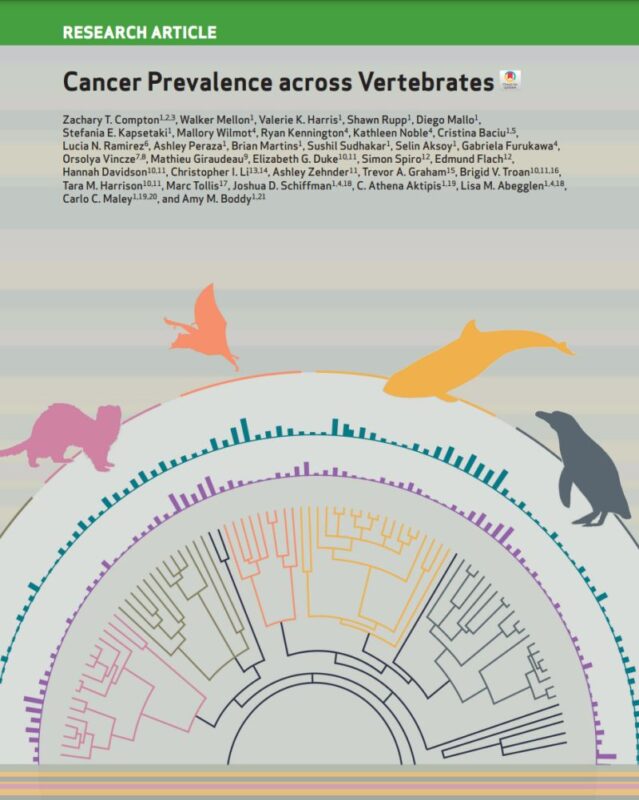, Executive Director of Cancer Discovery at the AACR, shared on LinkedIn:
“What explains the differences in cancer prevalence across multicellular species?
By analyzing over 16,000 zoo necropsy records for nearly 300 different vertebrate species (spanning amphibians, sauropsids, and mammals), Zachary Compton, Tara Harrison, Marc Tollis, Joshua Schiffman, Athena Aktipis, Lisa Abegglen, Carlo Maley, Amy Boddy, and colleagues found that neoplasia and malignancy prevalence increases with adult mass and somatic mutation rate but decreases with gestation time.
Find out more in ‘Cancer Prevalence across Vertebrates,’ published today in Cancer Discovery.
You can also read the American Association for Cancer Research press release here.”

More posts featuring Elizabeth McKenna on oncodaily.com
Elizabeth McKenna is the Executive Director of Cancer Discovery at the American Association for Cancer Research. Elizabeth earned her PhD from Harvard University and trained with Dr. Charles Roberts at the Dana-Farber Cancer Institute.
Her research was among the first to show that pediatric tumors characterized by mutations in chromatin remodelers are genomically stable and instead driven by epigenetic deregulation of key target genes.
She joined Cancer Discovery shortly after its launch as its founding Science Writer and became an editor in 2014, rising through the editorial ranks to become the journal’s Executive Editor in 2019. She is a member of the 40 Under 40 in Cancer Class of 2021.
